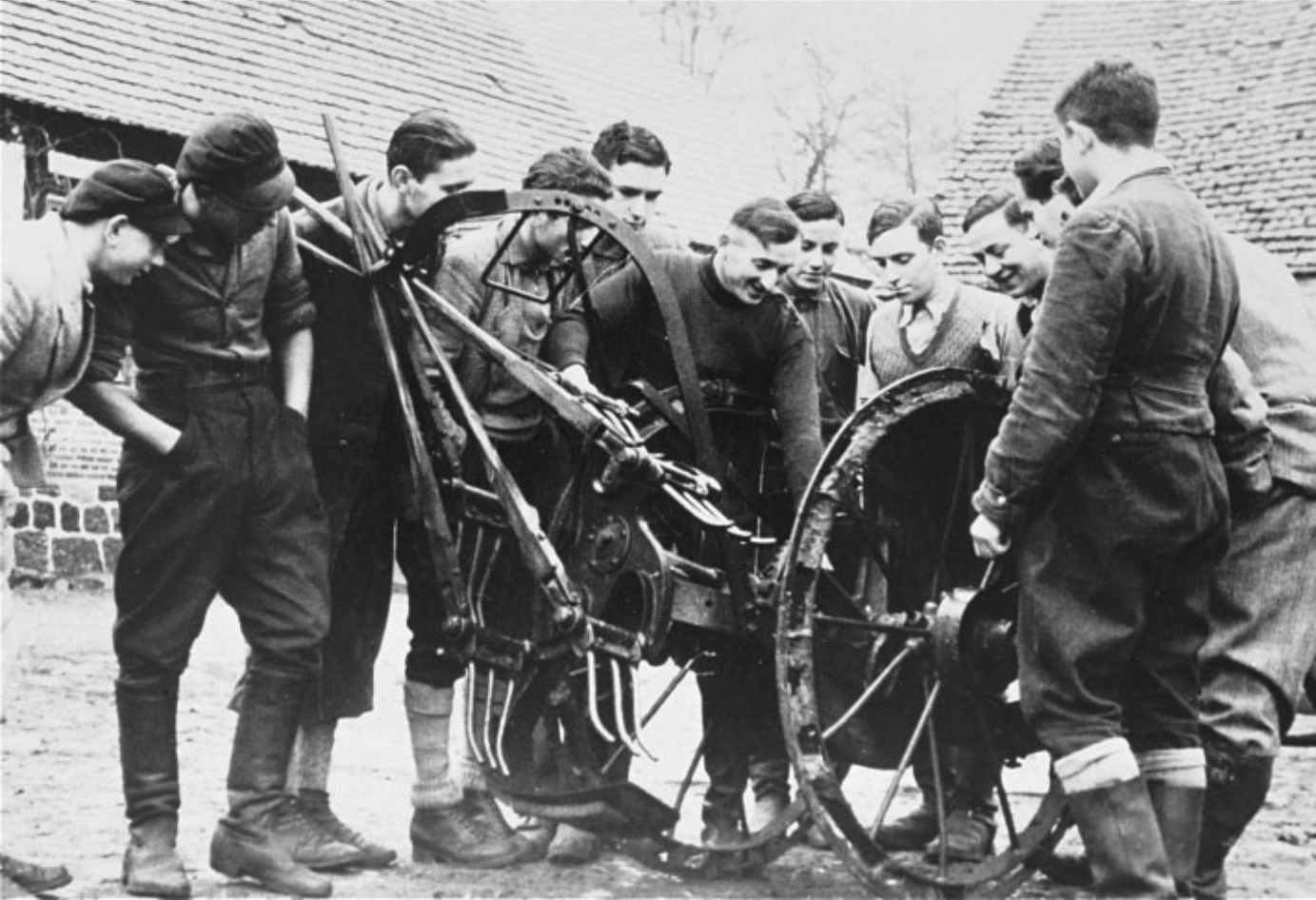cross‐posted from: https://lemmygrad.ml/post/2568540
Ernst Marcus, a prominent German Zionist from Berlin, was able to observe after the war that: “It was a fact of political significance that the supreme German authorities not only tolerated the emigration of German Jews to Palestine, but also advanced it by the great transfer possibilities [Ha'avara] and other measures.”10
The “other measures” to which Marcus referred included the Zionist occupational retraining centers throughout the Reich, for both the Haavara transfer system and the Zionist occupational retraining programs in Germany specifically assisted German Jews in meeting immigration requirements set by British Mandate authorities in Palestine.
Jewish Occupational Retraining Programs and Camps
A brief description of the retraining programs themselves will provide a backdrop to the discussion of Jewish occupational retraining in [Berlin’s] Jewish policy. The German Zionist movement had established several occupational retraining camps in Germany before 1933.
A systematic network of these centers, operated by the Zionist youth movement Hehaluts and other Zionist‐oriented organizations and sponsored by various Zionist groups and relief agencies, was operating within a year of Hitler’s appointment as chancellor. According to the Zentralausschuss der deutschen Juden für Hilfe und Aufbau (Central Committee of German Jews for Relief and Reconstruction), there were already 6,069 Jews in Zionist occupational retraining programs in [the Third Reich] in March 1934, almost 2,400 of whom were in agricultural retraining camps.
It expected the total number in all camps to increase dramatically in the near future.11 Even non‐Zionist Jewish organizations such as the Centralverein and the Reichsbund jüdischer Frontsoldaten (Reich League of Jewish Frontline Soldiers) reluctantly joined forces to establish an occupational retraining center at Gross‐Breesen in Silesia in 1936 to prepare young Jews for destinations other than Palestine.
Another non‐Zionist camp, established by the Gesellschaft für handwerkliche Arbeit (Society for Manual Labor), the German branch of the ORT (Obshchestvo Rasprostraneniia Truda, Organization for the Distribution of Artisanal and Agricultural Skills among the Jews of Russia), was opened in Berlin in 1937.12 Small retraining facilities established by individual Jews on their own property, as well as small retraining operations in Jewish homes in Berlin, Leipzig, and elsewhere, taught young Jews home economics, metallurgy, and other skills.13
Some Zionist retraining centers such as Schniebinchen bei Sommerfeld, along with several Jewish youth organizations, initiated four‐week “preparation camps” (Vorbereitungslager) for fourteen‐ to sixteen‐year‐olds (who were still too young to enroll in the established retraining programs). These brief courses included five hours per day of instruction in Hebrew, Jewish history and literature, natural sciences, general literature, and sports, as well as three hours of agricultural training.14
Show
[Pictured:] German Jewish youth are instructed in the use of agricultural machinery at a Zionist occupational retraining center (Hachschara camp, or Umschulungslager) in Germany, 1935. Reproduced with permission from Central Zionist Archives, Jerusalem, via the United States Holocaust Memorial Museum, Washington, D.C.
(Emphasis added in most cases. Click here for a footnote.)
In addition to supplying more evidence that the Third Reich was mostly Zionist, this paper inadvertently complicates totalitarian theory by demonstrating the disunity between government organizations:
[B]y 1934 a debate had emerged between those authorities opposed to the concept of occupational retraining for German Jews—notably the Ministry of Agriculture—and those in favor—mainly the Gestapo and the Reich Interior Ministry.
This complements Stephen G. Gross’s Export Empire, which explores some of the competing schools of thought in the Third Reich: hard power and soft power, formal empire and informal empire, all within the confines of a fascist vision. While this range of thought may seem narrow, it is a narrowness hardly unusual in other contexts, such as the U.S. Congress.
While normally I don’t share my own thoughts on these revelations—they tend to speak for theirselves already—having seen prominent Zionists publicly comparing their enemies to the German Fascists I find it entirely appropriate to say that the more that I read about Zionist collaboration with the Third Reich, the less inclined that I am to believe that the Fascists would have sided with Hamas against the Zionists.On the contrary, it is quite reasonable to speculate that the Fascists would have sided with the neocolonists over the natives, not only for racialist reasons but also because Palestinian militancy scares away settlers, often towards Europe, which was the last thing that the Fascists would have wanted. Figuratively and literally bulldozing the native land would have also made the neocolony more attractive to settlers, thereby encouraging Jewish emigration out of Europe. (The Fascists made similar efforts in Ethiopia to make it more appealing for Jewish settlers.)
Some of us have informally concluded that the Third Reich would have sided with the Zionist régime due to the very similar goals of spazio vitale and due to the régime’s violence against Arabs (whom the European Fascists saw as potentially useful in the short‐term but expendable in the long‐term). That may be true, but my hope is that now you’ll also be able to explain formally why the Third Reich almost certainly would have sided with the Zionist régime.
Of course, this is all just speculation; I normally see it as unworthwhile to predict what actors who have long since deceased would have done in a present situation, since we can no longer test our hypotheses. Nevertheless, if prominent Zionists are going to do it, it is only fair that we redargue them.


I have no idea how to broach the topic, but Zionism literally being a nazi project feels like a red pill to offer people incapable of having human empathy for Palestinians. Americans are, if nothing else, very open to WW2 era based arguments